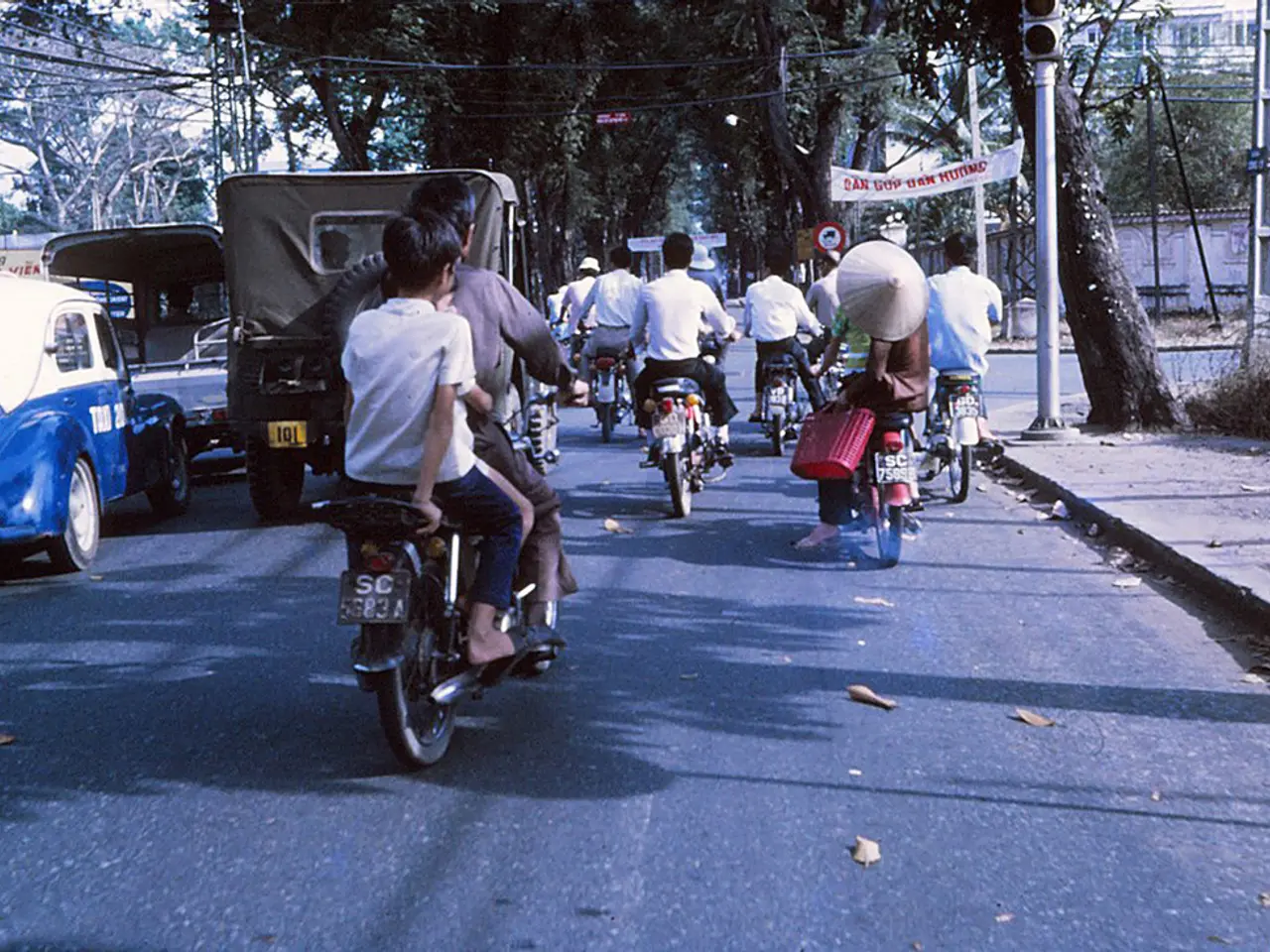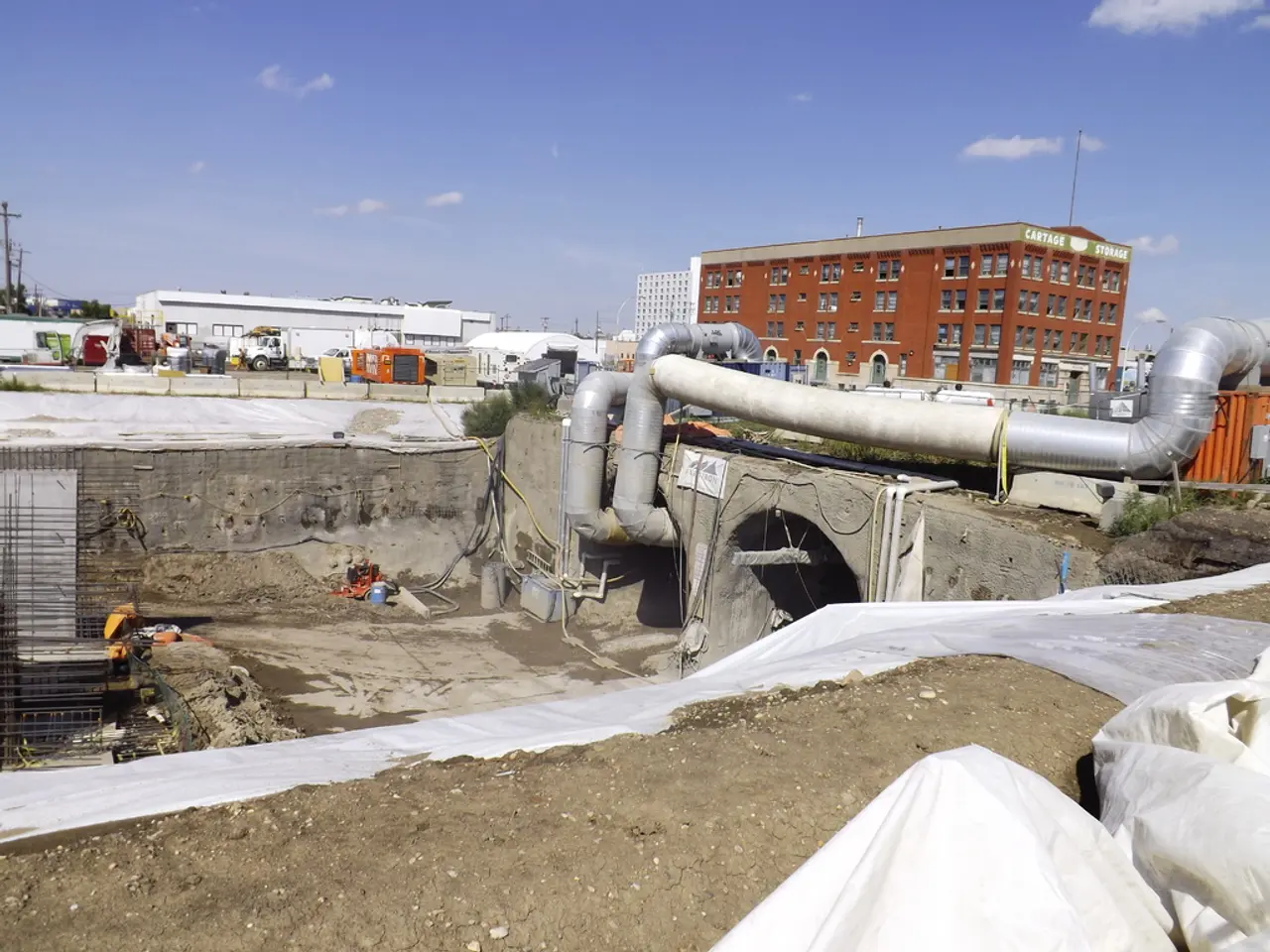Swiss cantons are generating significant revenue through speed cameras
In the picturesque landscapes of Switzerland, a debate is brewing over the use of speed cameras. While authorities argue they are essential tools for traffic safety, some citizens and observers question whether revenue considerations may influence enforcement policies more than safety alone.
The heart of the controversy lies in the financial impact of speeding fines on local budgets. Cities and cantons, such as Lucerne and Schaffhausen, have reported substantial revenues from these fines, with Lucerne collecting at least 20 million Swiss francs last year, and Schaffhausen earning over 7 million Swiss francs in 2024 alone. The small town of Schaffhausen, near the German border, even surpassed these figures, collecting over 7 million Swiss francs from speed cameras in a single year.
However, not all cantons see such high revenues. The canton of Aargau, for instance, earned comparatively low revenue at five million Swiss francs from speed cameras, according to Blick. This disparity fuels concerns about potential conflicts of interest, with some wondering if revenue generation might influence enforcement intensity.
Despite the financial benefits, the Swiss government is involved in wider European initiatives aimed at reducing road fatalities through intensified speed checks. The "speed marathon" coordinated by Roadpol is one such example, highlighting a strong safety motivation behind speed enforcement efforts. This broader context links Swiss enforcement practices with efforts across Europe to reduce speeding-related accidents and fatalities.
In the eastern canton of Thurgau, only about one in 300 vehicles are found to be speeding, according to a police spokesperson. This low rate of speeding tickets issued suggests that the speed cameras are effective, according to the cantonal police. Yet, residents like Sara Pidro in Aargau believe a speed camera could make a significant difference in the area, as drivers would pay more attention to avoid fines.
The debate extends beyond just the number of speeding tickets issued. Some drivers perceive speed checkpoints as a means for cantons, cities, and municipalities to boost their revenue. In response, people in the canton of Aargau will vote on a 'Stop Speed Camera Rip-offs' campaign in 2026, initiated by the Young Liberals and the Liberals. The campaign calls for transparent rules, fewer hidden speed cameras, and a focus on "real road safety".
Police claim that the locations of checkpoints are primarily chosen based on road safety considerations. However, the perceived use of speed cameras as substantial revenue generators remains a contentious issue, with high-profile fines, such as a driver fined over $1 million for extreme speeding, fueling public debate on fairness and proportionality.
In Thurgau, where the rate of speeding is low, the cantonal police maintain that the speed cameras are effective. Yet, given the frequency of speeding in other cantons like Aargau, a new speed camera could potentially generate a significant amount of money. The canton of Aargau, where calls for improved safety measures increased after a 10-year-old girl died from injuries after being struck by a car at a pedestrian crossing two years ago, is one such example.
As the debate continues, it is clear that the issue of speed cameras in Switzerland is a complex one, with concerns about revenue generation, fairness, and road safety all playing a role. The outcome of the 'Stop Speed Camera Rip-offs' campaign in 2026 may provide some insight into how Swiss citizens feel about the balance between these factors.
The financial revenues generated from speeding fines have raised questions within the industry, finance, and business sectors about potential conflicts of interest. For instance, cities and cantons like Lucerne and Schaffhausen have reported substantial revenues, while in contrast, the canton of Aargau earned comparatively low revenue. Consequently, the "Stop Speed Camera Rip-offs" campaign in 2026 will focus on transparent rules, fewer hidden speed cameras, and a focus on "real road safety" to address these concerns.




